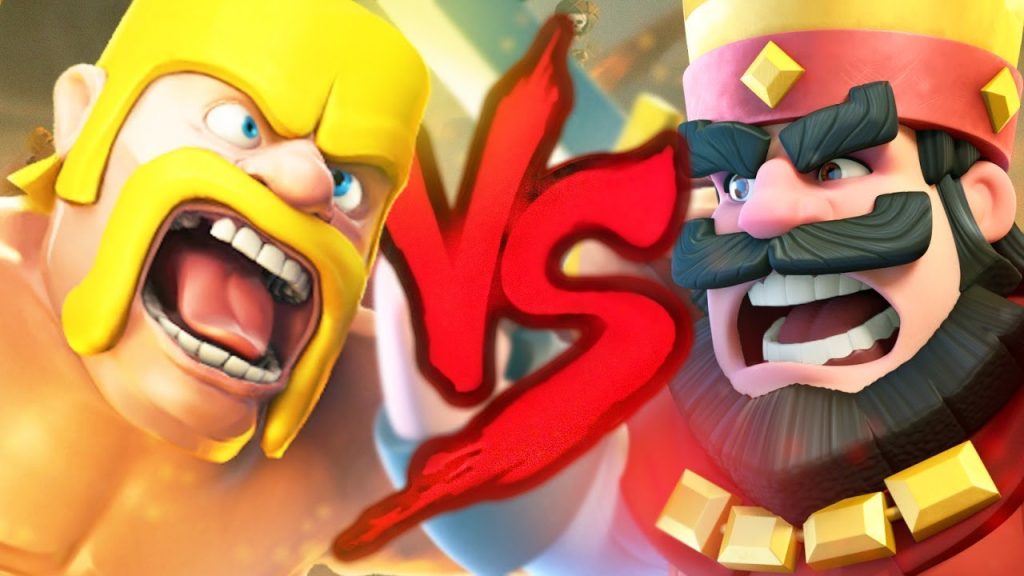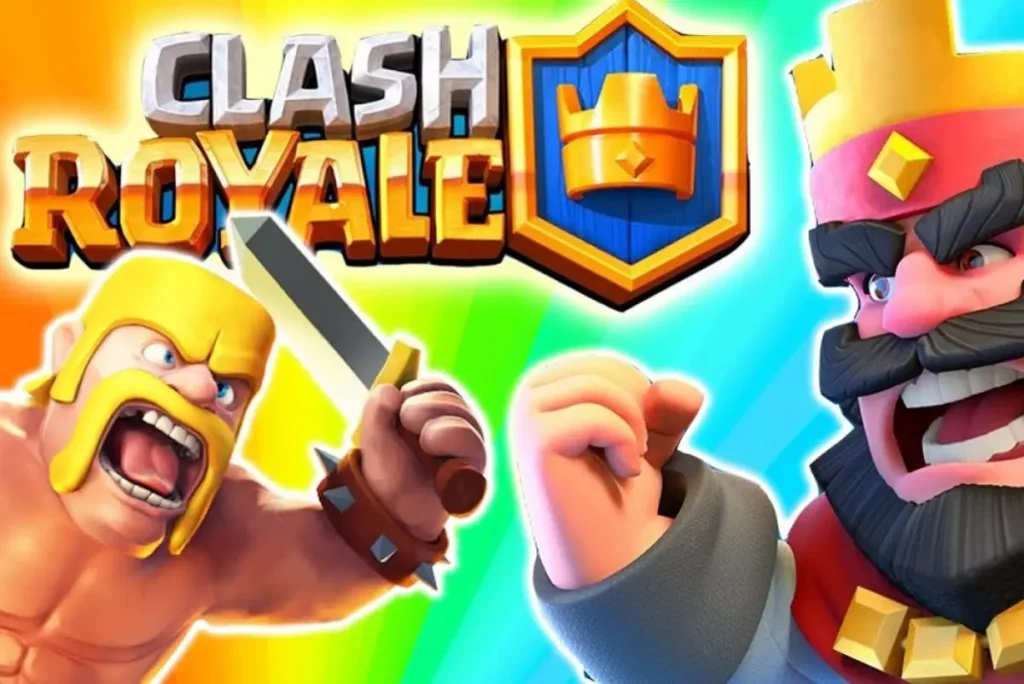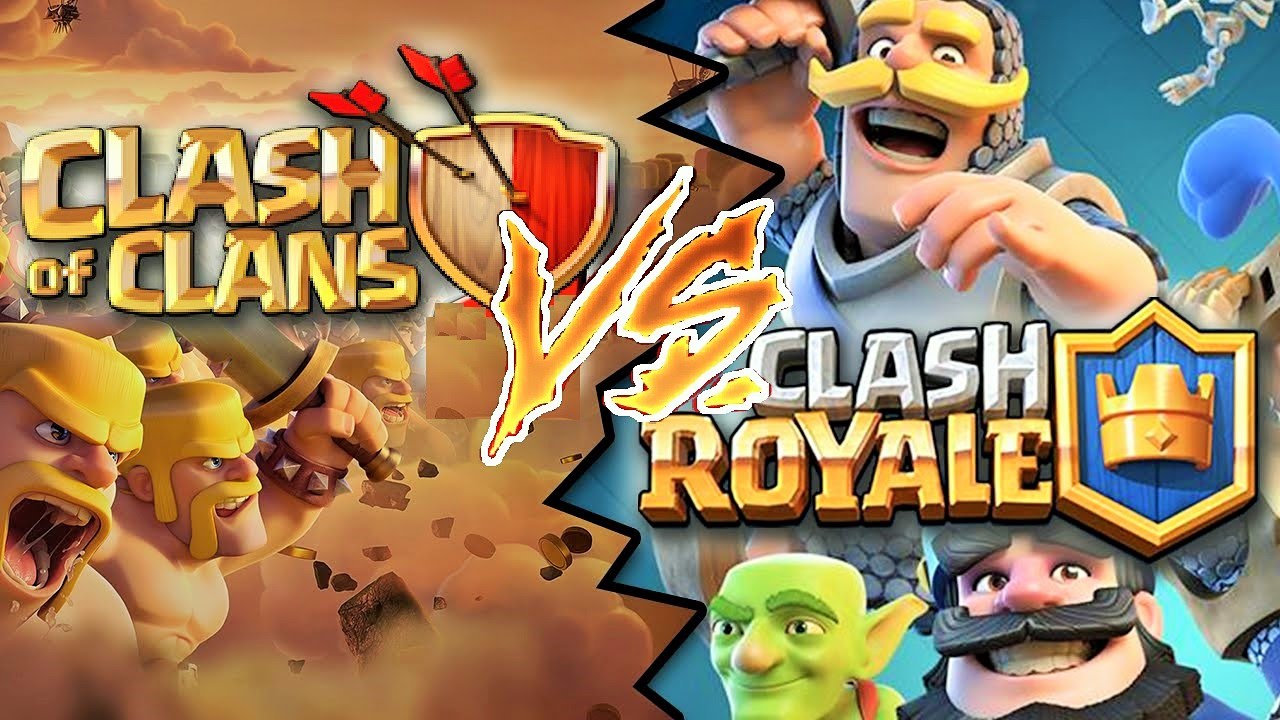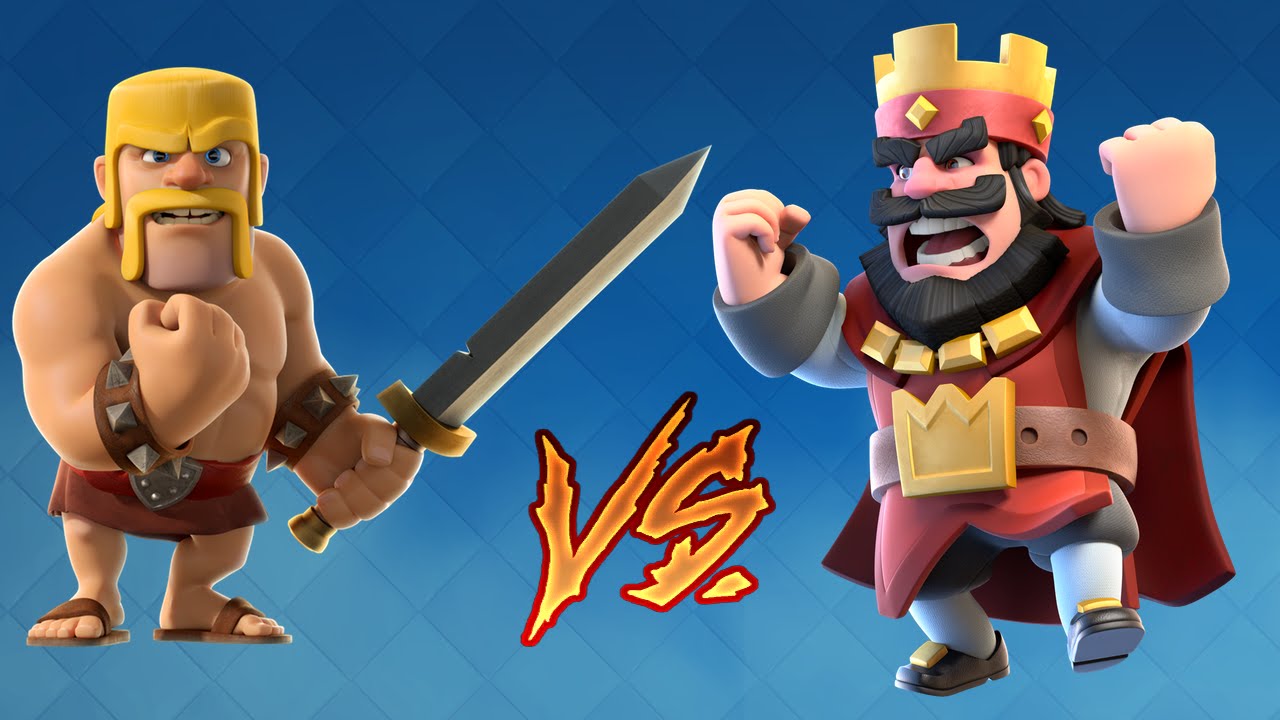Introduction
Clash of Clans and Clash Royale are two of the most iconic mobile games developed by Supercell. While both games share a similar fantasy universe and aesthetic style, their gameplay mechanics, strategies, community engagement, and monetization models diverge significantly. This detailed comparison aims to explore the nuances of Clash of Clans vs Clash Royale across multiple angles to help players, fans, and mobile strategy enthusiasts understand what sets these two games apart and which might be better suited to different play styles.
Gameplay Mechanics: Base Building Vs Real-Time Strategy

At the heart of Clash of Clans is base-building. Players are tasked with constructing and upgrading a village, strategically placing defenses such as cannons, archer towers, and traps to thwart enemy invasions. The game revolves around long-term planning, resource management, and asynchronous multiplayer battles where players attack others’ bases while being offline. The attacks are carried out by deploying troops strategically around the opponent’s base, but once deployed, the units operate automatically, relying on AI to navigate and attack structures.
On the other hand, Clash Royale is a real-time player-versus-player (PvP) game. Players use a deck of eight cards representing troops, spells, and buildings, which they deploy on a dual-lane battlefield. The primary goal is to destroy the opponent’s towers while defending your own. Each card requires elixir to play, and the flow of battle is dynamic and fast-paced. Decisions must be made in real-time, with timing and counterplay being crucial to success. Unlike Clash of Clans, Clash Royale emphasizes individual matches that last around 3 to 5 minutes, making it a quick yet strategic game that rewards tactical thinking and quick reflexes.
Progression Systems: Village Evolution Vs Card Collection
Progression in Clash of Clans is driven by upgrading buildings, troops, and heroes over time using resources like gold, elixir, and dark elixir. These upgrades take time—often several hours or even days—which can be accelerated using in-game currency. The sense of growth in Clash of Clans is long-term, with players watching their village evolve into a heavily fortified stronghold. Strategic planning is essential to optimize upgrade paths and resource usage.
Clash Royale features a card-based progression system. Players collect and upgrade cards by earning chests, completing events, and participating in tournaments. Each card can be leveled up to increase its power, and higher level cards significantly influence match outcomes. However, card upgrades depend on collecting duplicates and spending gold, creating a grind for frequent players. Progression is also tied to trophy count, as players rise through the ranks of arenas based on their win-loss record. Unlike Clash of Clans, Clash Royale progression is tied to match performance and deck optimization rather than village upgrades.
Multiplayer Experience And Community
Clash of Clans emphasizes cooperative gameplay through clans. Clan members donate troops to each other, participate in Clan Wars and Clan War Leagues, and communicate to strategize attacks. The social element of being part of a clan builds long-term engagement. Clan Wars, in particular, require coordination, timing, and teamwork as clans face off in large-scale battles over two days—one for preparation and one for attack.
Clash Royale also features clans, but the functionality is different. Players can donate and request cards, participate in Clan Wars 2, and chat with clanmates. However, the multiplayer experience is more individualistic, with most battles being one-on-one. Clan Wars 2 involves multi-stage progression, where individual battles contribute to a larger team effort. While still strategic, the camaraderie is less dependent on real-time communication and coordination compared to Clash of Clans.
Game Modes And Content Diversity
Clash of Clans offers various game modes beyond the standard multiplayer attacks. There’s the single-player Goblin Map, Builder Base mode, and seasonal events. Builder Base adds an entirely new base with different mechanics, including the ability to control troop movement more directly. Seasonal challenges and events offer new rewards and limited-time troops, keeping gameplay fresh.
Clash Royale is more dynamic in terms of regularly updated game modes. Special event challenges, global tournaments, party modes (like Triple Elixir, Draft, or Sudden Death), and daily rotating events add significant variety. Because each match is short, players can enjoy multiple modes in a short span of time. Clash Royale’s content pipeline is fast-paced, offering a constant stream of updates that tweak balance and introduce new cards or arenas.
Art Style And Universe
Both games share a consistent art style featuring colorful, cartoonish characters and exaggerated animations. The visual identity of Clash of Clans and Clash Royale is unmistakable, with characters like the Barbarian, Archer, Giant, and Wizard appearing in both games. Clash Royale, however, adds more personality to the characters, often giving them voice lines and animations that deepen their identities. The battle arenas in Clash Royale also vary in theme and visual design, whereas Clash of Clans has a more static aesthetic centered around your village and enemy bases.
Despite the overlap in characters, the way the universe is portrayed differs. Clash of Clans feels more like a simulation of an evolving medieval-fantasy civilization, while Clash Royale feels like a competitive fantasy sports arena, complete with crowds and fast-paced action. Both interpretations add to the richness of the Clash universe, catering to different storytelling preferences.
Monetization And Free-To-Play Experience

Both games are free to play, but monetization plays a significant role in progression speed and access to exclusive content. In Clash of Clans, players can buy gems to speed up construction, buy resources, or acquire builders—crucial for speeding up upgrades. While it’s possible to play entirely free, those who spend money can progress faster and have more flexibility in managing their village.
Clash Royale’s monetization is centered around buying gems, gold, and special offers. Players can spend money to open chests faster, purchase wild cards, and participate in challenges. The Season Pass—available in both games—offers enhanced rewards and faster progression, though it’s optional. Clash Royale tends to be more aggressive in pushing microtransactions due to its competitive nature. Higher-level cards can give players a noticeable advantage, especially at lower arenas.
Esports And Competitive Scene
Clash Royale has a well-established esports scene, with official tournaments organized by Supercell, third-party platforms, and influencers. The Clash Royale League (CRL) has been a global competitive stage, showcasing the best players in the world. The game’s focus on real-time PvP battles makes it ideal for streaming and spectating, attracting a wide competitive audience.
Clash of Clans also has a competitive layer, especially through Clan War Leagues and the Clash of Clans World Championship. However, due to the slower pace and asynchronous gameplay, it’s less suited for traditional esports compared to Clash Royale. That said, strategic depth and teamwork in Clan Wars do allow for high-level competitive play, albeit less flashy and more methodical.
Time Commitment And Accessibility
Clash of Clans requires long-term engagement. Upgrades can take days, and success often depends on patient planning, regular check-ins, and time management. It’s a great game for players who enjoy investing in gradual growth and resource management. Clash of Clans also allows for more casual play, as battles are not real-time and players can log in at their own pace.
Clash Royale is much more accessible for short gaming sessions. Each match lasts only a few minutes, and there’s constant action from the moment a game starts. It caters to players who want quick bursts of strategy and competition. Because of its fast-paced nature, Clash Royale is ideal for commuting, short breaks, or time-limited gameplay sessions.
Learning Curve And Skill Ceiling
Clash of Clans has a moderate learning curve. While initial base-building and attacking are easy to grasp, the depth increases with Town Hall levels, new troop types, and advanced war strategies. Mastery comes from understanding base design, attack funneling, hero usage, and spell deployment. It rewards strategic planning over fast decision-making.
Clash Royale has a steeper learning curve initially, especially for those unfamiliar with real-time card games. Players must learn card synergies, elixir management, and reaction timing. However, once mastered, the game offers a high skill ceiling with nuanced deck strategies, counters, and positioning. It’s a game where player skill often determines victory, especially at higher trophy levels.
Longevity And Updates

Both games have shown remarkable longevity. Clash of Clans was released in 2012 and continues to receive major updates more than a decade later. Supercell regularly adds new Town Hall levels, troops, and game modes to keep the experience engaging. Its loyal player base and strong clan structure help retain interest over time.
Clash Royale, launched in 2016, also receives frequent balance changes, new cards, and seasonal updates. The game’s live-service model ensures that metas shift frequently, keeping the game fresh. The introduction of Champions and Level 15 upgrades has extended the game’s progression possibilities. Its shorter matches and dynamic updates make it easier for players to return even after long breaks.
Which Game Is Better? It Depends On Your Play Style?
The ultimate question—Clash of Clans vs Clash Royale—does not have a definitive answer. It depends entirely on the kind of experience you’re looking for. If you enjoy long-term planning, base-building, and cooperative clan dynamics, Clash of Clans will likely appeal more. It’s a game of patience, progression, and strategy over time.
On the other hand, if you’re more inclined toward competitive, real-time strategy with fast matches and evolving metas, Clash Royale is the better fit. It’s designed for short bursts of intense focus and rewards players who enjoy PvP battles and quick thinking.
Both games showcase Supercell’s excellence in mobile game development. They offer polished experiences, thriving communities, and regular updates that keep players engaged. In fact, many players enjoy both games for their unique strengths, switching between them based on mood, time availability, or strategic interest.
Conclusion
Clash of Clans and Clash Royale, while rooted in the same universe, offer distinctly different gaming experiences. One prioritizes base-building and long-term progression; the other focuses on real-time battles and deck strategy. Choosing between the two is less about which is objectively better and more about which fits your style of play. With strong support from Supercell, passionate communities, and ongoing innovation, both games stand as titans in the mobile gaming world. Whether you’re building your empire brick by brick in Clash of Clans or battling in the arena in Clash Royale, you’re guaranteed a strategy-filled, engaging experience that has stood the test of time.

